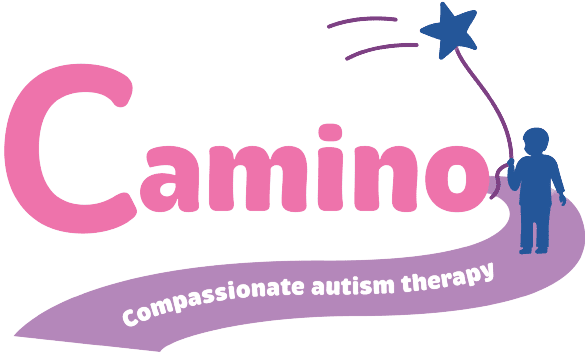ABA Treatment Plan Albuquerque

Important Takeaways for Parents From the American Academy of Pediatrics Autism Guidelines
At Camino, we pride ourselves on creating tailored ABA treatment plans in Albuquerque for children. We embrace new knowledge and growing opportunities to support the autism community – a significant step forward from where we were a decade ago. Recently, the American Academy of Pediatrics (AAP) has taken a pivotal step by releasing a fresh clinical report with revised autism guidelines, marking its first update in over a decade.
The journey towards greater awareness and comprehension of autism has seen remarkable strides over the past 12 years. In our practice, we’ve witnessed these evolutions firsthand. With the introduction of the DSM-5, the definition of autism now encompasses a broader spectrum under Autism Spectrum Disorder (ASD). There’s been a noticeable increase in autism prevalence, now affecting one in 59 children. Research underscores the benefits of early screening, with the possibility of diagnosing children as young as 14 months. The government’s increased investment in autism research through initiatives like the Autism CARES Act has been a game-changer. Perhaps most crucially, we’ve observed how evidence-based approaches, such as Applied Behavior Analysis (ABA therapy), have profoundly transformed the lives of numerous families, particularly those who started therapies in the early years of their children’s lives.
This substantial research forms the foundation of the AAP’s latest autism guidelines. The report, primarily aimed at pediatricians and healthcare professionals, is also an invaluable resource for parents. The AAP empowers parents to actively participate in the mental health care of their children.
At Camino, we emphasize the critical importance of early detection and prompt intervention in autism, impacting not just the childhood years but the entire lifespan of an individual. This highlights the urgency of not delaying in the face of potential developmental concerns. Rather than waiting and observing for extended periods, early autism screening can make a significant difference in a child’s developmental trajectory.
What You Need to Know About the AAP’s New Guidance Concerning Autism:
Recognizing autism early is essential for optimal childhood development and lifelong independence. In managing autism, every moment counts. The American Academy of Pediatrics (AAP) strongly advises parents to be proactive, recommending that children be screened for autism between the ages of 9 to 30 months. Should there be any concerns about your child’s development that might indicate autism, immediate action using accessible screening tools like the M-CHAT or seeking a professional assessment is crucial. This is particularly vital for children with a family history of ASD, those born prematurely, or those exhibiting other risk factors.
It’s important to understand that identifying ASD early is just the beginning. For families noticing developmental delays or potential autism indicators, it’s imperative to start interventions without waiting for an official diagnosis. Depending on your location, there might be a waiting period for an evaluation. However, starting an intervention early, such as an autism treatment plan in Albuquerque, can lead to better outcomes. Parents who suspect their child may be on the autism spectrum should consider initiating supportive therapies. In New Mexico, ABA therapy is covered by most insurance while awaiting a formal diagnosis. These early steps can provide a critical foundation for a child’s future development.
After a child is diagnosed with autism, comprehensive treatment approaches, notably including Applied Behavior Analysis (ABA) therapy, have been proven highly effective. The importance of a formal diagnosis lies in unlocking access to these robust treatment options. Studies show that children benefit more from comprehensive treatment models (CTMs) that offer intensive intervention, such as Early Intensive Behavioral Interventions (EIBI). For example, tailored ABA therapy programs that provide focused skill-building sessions for 25 to 40 hours a week have shown significant progress compared to less intensive approaches.
Exploring the underlying causes of autism can also be beneficial. The recent report highlights the importance of etiology, recommending that physicians consider offering genetic evaluations or consultations to explore potential genetic factors in autism. This additional insight, while not always conclusive, can be invaluable for families seeking a deeper understanding of their child’s condition. Addressing autism symptom treatment in Albuquerque through multidisciplinary care and proper evaluation can enhance the effectiveness of a child’s overall treatment plan.
Challenges, seizures, and wandering can greatly impact the health and safety of children with autism. Pediatricians who are knowledgeable about these concurrent conditions are better equipped to recognize and respond to the various health and behavioral challenges present. These might manifest in children with limited communication abilities, often leading to behaviors like tantrums. A comprehensive understanding of these associated conditions allows parents and caregivers to better monitor, manage risks, consider various therapy options, and set appropriate goals for their child’s care.
Additionally, it’s crucial for healthcare providers to be aware of and address co-occurring conditions that often accompany autism. Conditions such as sleep disorders, attention-deficit/hyperactivity disorder (ADHD), feeding difficulties, gastrointestinal issues, and anxiety disorders are common among children with autism and require careful assessment and management to improve their overall quality of life.
Camino Follows the AAP’s New Autism Guideline
Camino already has established programs and a skilled team that align with the guidelines provided by the AAP, emphasizing early identification.
“Obtaining support during the critical developmental stages of childhood is crucial,” explains Camino’s Director of ABA. “Currently, the average age for an autism diagnosis is around 4 years, but ideally, we aim to lower this to about 2 years. This is when children’s brains are highly adaptable, particularly in areas like communication, social-emotional learning, and cognitive and motor skills. At Camino, our qualified psychologists are equipped to diagnose children as young as 15 months old.”
Our approach at Camino begins with diagnosis but extends beyond, aiming to assist children in successfully transitioning to school and other environments. Here’s how we support the AAP’s recent recommendations:
Comprehensive Services: Camino provides diagnostic services, ABA therapy, and a range of other autism-related treatments for children starting from 15 months of age. Our goal is to offer early assistance for optimal outcomes.
Multidisciplinary Approach: Many of our centers offer a diverse range of services, including ABA therapy, occupational therapy, and speech therapy, all conveniently located under one roof. This setup ensures children have access to a holistic range of services tailored to their unique needs.
Funding Support: Recognizing the importance of accessibility and affordability, Camino has a dedicated Care and Benefits team. This team assists parents and guardians in navigating through various funding options, including insurance and Medicaid.
Parental Involvement: Parent training is a cornerstone of our services. We believe in maintaining open communication for queries and collaborative goal setting. Our Board Certified Behavior Analysts (BCBAs) work closely with parents, offering specific strategies and tools to enhance progress and transfer skills to the home environment.
Collaborative Care: At Camino, we understand the unique expertise each healthcare provider brings. Our therapy teams collaborate closely with children’s physicians to comprehend how co-occurring conditions might influence their behavior and development. We foster open communication between all providers, ensuring cohesive and targeted care toward shared goals.
It’s Important To Start Your Child’s Autism Treatment Plan in Albuquerque as Early as Possible!

